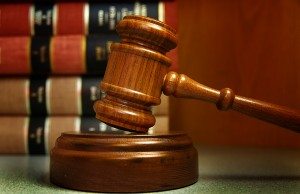New York Misdemeanor Defense Attorney
Unfortunately, many people have inaccurate ideas about misdemeanors and their consequences. All too many defendants assume that just because their charge is not a felony, it’s simply “not a big deal” and doesn’t merit hiring an attorney or fighting the charges. In reality, misdemeanor convictions have the power to trigger expensive fines, long periods of incarceration, and permanent criminal records. The bottom line is that a misdemeanor arrest is a serious situation that needs to be addressed immediately.
The criminal defense attorneys of Sullivan & Galleshaw serve New York City residents across all five boroughs and the surrounding metropolitan area. We bring more than 30 years of experience to the table and pride ourselves on our commitment to aggressive legal representation. We formulate personalized defense strategies and relentlessly comb through the evidence to protect our clients’ legal rights.
To set up a free and confidential case evaluation with our experienced New York misdemeanor defense lawyers, call Sullivan & Galleshaw at (800) 730-0135 .
What Are Misdemeanors? How Are They Different From Felonies?
In New York, all criminal offenses are classified as either felonies or misdemeanors. There are a few major differences between these two categories of crime:
- Felonies are divided into “violent” and “non-violent” crimes, with violent crimes receiving longer minimum sentences. Misdemeanors are not divided in this way.
- Felony convictions can lead to additional consequences which misdemeanors do not. For example, convicted felons are not allowed to vote until they complete their parole or probation. This does not apply to misdemeanors.
- Felonies can lead to much longer prison sentences than misdemeanors, whose maximum sentences are capped at one year. By comparison, some felonies can lead to life sentences.
There are three levels of misdemeanor offense in New York: Class A Misdemeanors, Class B Misdemeanors, and unclassified misdemeanors. Offenses “above” Class A Misdemeanors are felonies, while offenses “below” unclassified misdemeanors are called “violations” and are not technically crimes.
Fines, Sentences, and Other Penalties and Consequences
Misdemeanor convictions in New York can result in the following penalties:
- Class B Misdemeanors
- Sentence – May not exceed 3 months
- Fine – May not exceed $500
- Class A Misdemeanors
- Sentence – May not exceed 1 year
- Fine – May not exceed $1,000
It’s tempting to believe that misdemeanors are inconsequential because the fines and sentences are less extreme than those imposed for felonies. Unfortunately, misdemeanors still have long-term negative effects which can continue to interfere with your daily life long after your time has been served and your fines have been paid. For example, if you are convicted of a misdemeanor:
- You will receive a criminal record, which will appear if a potential employer, lending agency, or landlord decides to run a background check. Despite numerous anti-discrimination laws, people with criminal histories often find themselves passed over for jobs and denied for loans or housing.
- You may be barred from entering certain countries unless you are able to obtain special authorization.
- You could face additional miscellaneous penalties specific to your offense. For example, a conviction of misdemeanor sexual misconduct could force you to register as sex offender. A conviction of misdemeanor DWI (Driving While Intoxicated) can result in your driver’s license being suspended.
Which Crimes Are Categorized as Misdemeanors in New York?
New York law recognizes hundreds of different crimes. The following lists are non-exhaustive and do not list every possible offense. To see a complete list of all misdemeanors, please refer to the New York Penal Law.
Class B
- Fifth Degree
- Criminal Possession of Marijuana
- Criminal Sale of Marijuana
- Fourth Degree
- Stalking
- Third Degree
- Criminal Trespass
- Menacing
- Sexual Abuse
- Second Degree
- Criminal Diversion of Medical Marijuana
- Criminal Nuisance
- First Degree
- Harassment
- Loitering
- Unclassified
- Adultery
- Issuing a Bad Check
- Possession of Graffiti Instruments
- Prostitution
- Public Lewdness
- Refusing to Aid a Police Officer
- Unlawful Assembly
Class A
- Fifth Degree
- Arson
- Conspiracy
- Criminal Possession of Stolen Property
- Insurance Fraud
- Welfare Fraud
- Fourth Degree
- Criminal Mischief
- Criminal Possession of Marijuana
- Criminal Sale of Marijuana
- Criminal Weapons Possession
- Third Degree
- Assault
- Bail-Jumping
- Patronizing a Prostitute
- Perjury
- Stalking
- Second Degree
- Aggravated Harassment
- Criminal Trespass
- Menacing
- Reckless Endangerment
- Sexual Abuse
- First Degree
- Hazing
- Public Lewdness
- Unclassified
- Forcible Touching
- Making Graffiti
- Petit Larceny
- Possession of Burglar’s Tools
- Prostitution in a School Zone
- Sexual Misconduct
If you or a loved one has been placed under arrest, the time to act is now. Call Sullivan & Galleshaw at (800) 730-0135 to set up a free and private case evaluation.
Personal Injury
Practice Areas
Recent Posts



